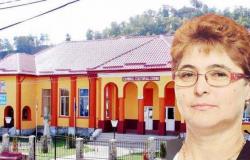After paying more for gas because there was a crisis, now it will cost more because we have too much in storage.
Spring finds us with gas reservoirs 50% full, after earlier in the winter they were filled to a record 106%. Now, after we got through the winter well, the reverse side of the medal also stands out: the price of gas could increase by 5-10% due to the costs incurred by the suppliers of these gases, says Dumitru Chisăliță, an expert in the field.
According to Gas Infrastructure Europe data, Romania has, at the end of winter, 50% full of gas deposits, the EU average being 58%.
For Romania, it is a volume of 1.6 billion cubic meters of gas. Comparatively, the consumption of the entire country in one year is 10 billion cubic meters.
The fact that this amount of gas remained in warehouses means higher costs for suppliers, which could lead to a 5-10% increase in the price of gas, on average, for all consumption at the national level, stated Dumitru Chisăliță, president of of the Intelligent Energy Association and former director of Romgaz.
“That’s because, first of all, some of that gas has been there for 2-3 winters, when we’ve also stored too much, so we’re paying multiple times the storage rates for the same amount of gas. In addition, when they were purchased to be stored, in past years, the prices were higher”, stated Chisăliță.
He pointed out that storing such a large amount of gas was ANRE’s decision.
“Of course, the European Union asked for sufficient stocks. But ANRE should have done a risk analysis. He needed to analyze what the costs of these stocks were and what the benefits were. Is there a risk of running out of gas in the dead of winter? If so, the authorities should have come out and said transparently that these are the decisions and here are the costs. But no one talked about costs last fall. It’s like insurance: we wanted to be reassured that we wouldn’t run out of gas, but energy security comes at a cost. There are no beautiful things without costs”, said Dumitru Chisăliță.
Contacted by HotNews.ro, the president of ANRE, George Niculescu, stated that the decision to store gas in a proportion of at least 90% of the storage capacity came from the EU, and the authority only established the intermediate targets.
“It’s hard to say whether the fact that these gases are left in storage will translate into a price increase,” he said. “In theory it is possible to add a cost with storage, the statement is not wrong, but it is necessary to see how much gas each supplier has stored, at what price it is mixed with other quantities of gas and what is the resulting price.
“Maybe a supplier doesn’t transfer all the cost in the final price, maybe they reduce their profit, I don’t know what they will do, it’s their commercial decision. We, as state authorities, have fulfilled our objective from the point of view of the safety of gas supply, we have ensured that we pass the winter well, no one can accuse us of not doing our job”, says Niculescu .
Instead, the energy minister says the gas remains there for next winter, without specifying who bears the costs.
“Gas in deposits is not lost gas. It stays there for the following winter and also takes the pressure off of not being able to prepare at least as well for the next cold season. We will store less”, said Sebastrian Burduja, Minister of Energy.
Neither official is saying what additional costs this security of supply entails.
HotNews.ro has written since last fall that, although the gas deposits in Romania are full, this does not mean either lower prices or independence from imports.
And so it was. Paradoxically, even if the deposits were full, Romania still imported gas, since imported gas was cheaper than Romanian gas.






